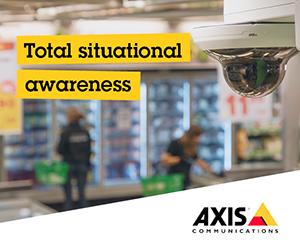INDUSTRY FOCUS
ID fraud dips for the first time since 2014
The latest headline figures for incidents of identity fraud, which represents more than half of all recorded fraud incidents, have shown the first decline since 2014, according to CIFAS, the UK’s leading fraud prevention service.
Members of the not-for-profit organisation recorded 84,463 cases in the first six months of the year, representing a 5 per cent drop compared to the same period in 2017 when the total stood at 89,199.
The latest figures show that 87 per cent of all identity fraud takes place online.
There has been a reduction in the volume of bank accounts being targeted by identity fraudsters, with cases falling by 12 per cent (2,882 fewer cases), and a 34 per cent reduction in attempts to obtain mobile phone contracts (3,096 fewer cases).
But, despite the overall dip, the figures reveal a sharp rise in identity fraudsters applying for plastic card accounts, with cases increasing by 12 per cent (3,454 more cases being recorded).
The figures also show that identity fraud against online retail accounts has risen by 24 per cent (1,232 more cases).
The majority of identity fraud happens when a fraudster pretends to be an innocent individual to buy a product or open an account in their name.
Victims may not even realise that they have been targeted until a bill arrives for something they did not buy, or they experience problems with their credit rating.
To carry out this kind of fraud successfully, fraudsters need access to their victim’s personal information such as name, date of birth, address, their bank and details of with whom they hold accounts.
Fraudsters access such detail in a variety of ways, from stealing mail through to hacking, obtaining data on The Dark Web, exploiting personal information on social media or though ‘social engineering’ (whereby innocent parties are persuaded to give up personal information to someone pretending to be from their bank, the police or a trusted retailer).
Sandra Peaston, director of strategy, policy and insight at CIFAS, said: “Identity fraud cases reached record levels in 2017. Therefore, it’s positive that we have seen an overall reduction in the first six months of the year.
“However, these new figures demonstrate that identity fraudsters adapt quickly to try and circumvent security measures. The re-targeting of plastic cards, following a drop in 2017, is a prime example of this.”
Peaston added: “With identity fraud remaining uncomfortably high, more personal information available online and increasing numbers of data breaches, the protection of personal data must be viewed as a collective responsibility. Everyone should play their part, from individuals and organisations taking steps to protect their own personal data through to businesses ensuring that their fraud prevention practices effectively defend against evolving tactics employed by identity fraudsters.”
Pauline Smith, head of the City of London Police’s Action Fraud team, highlighted: “This overall reduction in identity fraud is an encouraging step in the right direction for the fight against fraud. However, we would urge people to remain cautious when sharing their personal details. Fraudsters prey on vulnerability. The sharp rise in fraudulent applications for plastic card accounts means that it’s as vital as ever for people to continue protecting their personal details. You should check your banking statements carefully and report anything suspicious to the bank or financial service provider concerned.”





